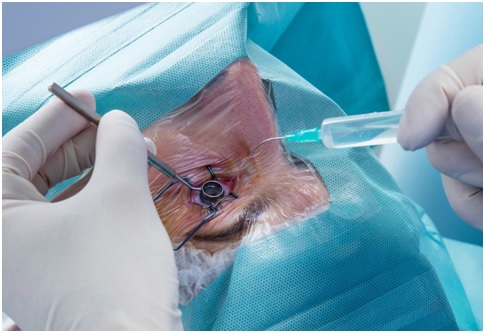What is glaucoma?
Glaucoma surgery is a highly effective treatment for glaucoma, with a success rate of over 90%. It is usually safe and well tolerated, and complications are rare.


What are the symptoms of glaucoma?
Glaucoma is a group of eye disorders that damage the optic nerve. This nerve is responsible for transmitting images from the eye to the brain. Glaucoma can cause vision loss and is the leading cause of blindness in the United States. There are two main types of glaucoma: open-angle glaucoma and angle-closure glaucoma.
Open-angle glaucoma is the most common type of glaucoma. It develops slowly and often has no early symptoms. As the disease progresses, people with open-angle glaucoma may notice that their side vision is gradually worsening. Make sure to check out cataract surgery in Singapore. They may also have difficulty seeing at night.
Angle-closure glaucoma is less common but more serious. It occurs when the eye’s drainage angle becomes blocked, causing a sudden increase in pressure inside the eye. This can lead to severe eye pain, headaches, nausea, and vomiting. If not treated promptly, angle-closure glaucoma can cause irreversible vision loss.
There is no cure for glaucoma, but early detection and treatment can slow or prevent vision loss. If you are at risk for glaucoma, your doctor may recommend regular eye exams
What causes glaucoma?
Glaucoma is a condition in which the optic nerve, which connects the eye to the brain, is damaged. This damage is usually caused by an increase in pressure inside the eye.
There are several factors that can contribute to this increase in pressure, including:
- A blockage in the drainage canals of the eye, which prevents fluid from draining properly
- A build-up of fluid in the eye
- A thinning of the eye’s nerve fiber layer
- A change in the shape of the eye
Glaucoma can also be caused by other conditions, such as diabetes, high blood pressure, or a head injury.
If left untreated, glaucoma can lead to vision loss or even blindness. However, with early diagnosis and treatment, many people with glaucoma are able to maintain their vision.
How is glaucoma diagnosed?
Glaucoma is a condition that affects the optic nerve and can lead to vision loss. It is often diagnosed through a comprehensive eye exam that includes testing the pressure inside the eye and examining the optic nerve for damage. This article will discuss how glaucoma is diagnosed and what you can expect during a comprehensive eye exam.
How is glaucoma treated?
Glaucoma is a condition that causes damage to the optic nerve, which can lead to vision loss. There are several types of glaucoma, and the most common type is open-angle glaucoma. This type of glaucoma can develop slowly and painlessly, which is why it is often referred to as the “silent thief of sight”.
While there is no cure for glaucoma, there are treatments that can help to slow the progression of the disease and preserve vision. The most common treatment for glaucoma is eye drops that help to reduce the pressure in the eye. In some cases, surgery may be needed to treat glaucoma.
If you have been diagnosed with glaucoma, it is important to follow the treatment plan prescribed by your eye doctor. Taking your eye drops as directed and having regular eye exams can help to keep your vision and prevent further damage to your optic nerve.


What are the risks of glaucoma surgery?
Glaucoma is a condition that affects the eyes and can lead to vision loss. Glaucoma surgery is a treatment option for people with glaucoma. The goal of glaucoma surgery is to lower the pressure in the eye. This can help prevent or slow the progression of glaucoma.
Glaucoma surgery is generally safe. However, as with any surgery, there are some risks.
These risks include:
- Bleeding.
- Infection.
- Swelling.
- Retinal detachment.
- Cataracts.
Most people who have glaucoma surgery do not experience any complications. Complications from glaucoma surgery are rare, but they can occur. If you have any concerns about the risks of glaucoma surgery, talk to your doctor.
What are the benefits of glaucoma surgery?
There are many benefits to glaucoma surgery. It can improve vision, relieve pain, and prevent further damage to the eye. It is important to talk to your doctor about the risks and benefits of surgery before making a decision.
What are the types of glaucoma surgery?
Glaucoma is a serious eye condition that can lead to blindness. There are two main types of glaucoma – open angle and closed angle. Open-angle glaucoma is the most common type and affects around 3% of the population. Closed-angle glaucoma is less common but more serious, and can cause sudden, severe eye pain and vision loss.
Glaucoma can be treated with medication, but sometimes surgery is also required. The most common type of glaucoma surgery is called trabeculectomy. This involves making a small incision in the eye and creating a new drainage channel for the fluid to drain out of. This can help to reduce the pressure in the eye and prevent further damage to the optic nerve.
Other types of glaucoma surgery include laser trabeculoplasty, in which a laser is used to create the new drainage channel, and filtering microsurgery, in which a tiny piece of mesh is placed over the drainage channel to help keep it open.
Glaucoma surgery can be effective in treating the condition and preventing further damage to the eye. However, it is important to remember that surgery is not always successful and there is a risk
What is the success rate of glaucoma surgery?
Glaucoma surgery is usually successful in reducing intraocular pressure (IOP) and preserving vision. However, the success of surgery depends on many factors, including the type of glaucoma, the severity of the disease, and the experience of the surgeon. In general, surgery is most successful in treating early-stage glaucoma and less successful in treating advanced-stage disease.
















